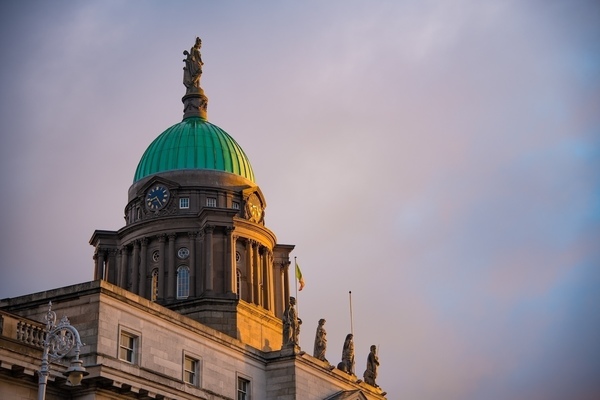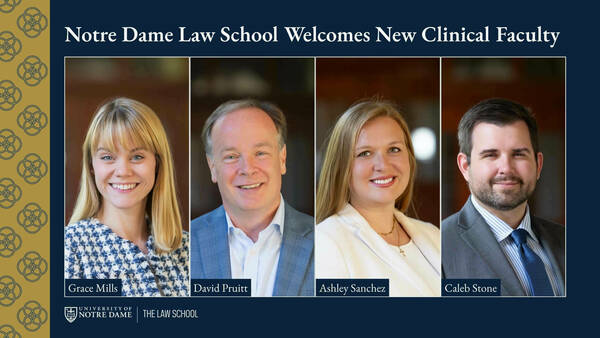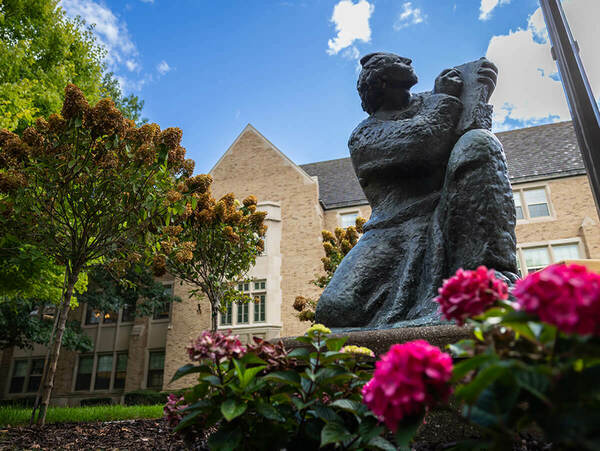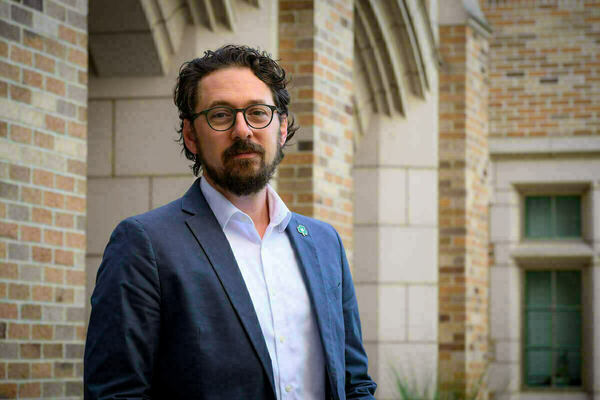Entrepreneurship and Empowerment in South Africa study abroad program celebrates 25 years
This year, the Entrepreneurship and Empowerment in South Africa (EESA) program marked its 25th year of operation. EESA is a six-week summer study abroad program that enables students to help historically disadvantaged entrepreneurs in the townships surrounding Cape Town, South Africa. Since its beginning, the program has been led by Michael Morris, professor of entrepreneurship and social innovation in the Keough School of Global Affairs.

Morris’s connection with South Africa dates back to his time as a Fulbright Scholar at the University of Cape Town’s (UTC) Graduate School of Business— “It was a great experience,” he notes. “I fell in love with South Africa with all its challenges.” The graduate school invited Morris to return as a visiting chairholder, extending and deepening his connection with the country. During that time, South Africa was going through exciting transitions—apartheid was abolished, Nelson Mandela was released from prison, free and fair elections took place, and against all odds, the South African team won the rugby World Cup. And yet, a large portion of South Africa’s population was being neglected in the face of these changes.
“In the mid-1990s, the Black townships, where more than 60% of the population lived in abject poverty, were being largely ignored by the major universities,” Morris shares. “And so we started a course to take MBA students into the townships and work with struggling entrepreneurs.” The school’s leadership thought the course might attract a handful of students. Instead, they pulled in roughly two-thirds of the MBA class.

“That was the genesis of what became the Entrepreneurship and Empowerment in South Africa program,” Morris says. After a few years, the program was moved to a new home at the University of the Western Cape, a historically non-white university that is near the townships and committed to economic and social empowerment of these communities. Over the years, over 500 disadvantaged entrepreneurs have been served. The EESA program moved to Notre Dame in 2019, and annually includes 28 American students and 28 South African students.
The program is not for the faint of heart. It is rigorous and fast-paced. Students begin their day in the classroom, learning tools and consulting techniques for use in the field. In the afternoon, they head out to the townships where the entrepreneurs are based. They work in teams, and each team works with two clients, where in addition to detailed research and analysis, they must produce four deliverables (or problems solved) for each client by the end of the six weeks. The groups come back together at night, debrief their day, and make a plan for the next day.
While the program itself is intense and logistically complex, after 25 years, it’s a well-oiled machine. The EESA leadership team has established a deep connection with the University of Western Cape, built relationships with community leaders, government officials, and key players in the entrepreneurial ecosystem, and developed a rich understanding of the challenges and needs of the entrepreneurs being served —so they come ready each summer to hit the ground running.

The central focus of the program is made clear to students the moment they arrive: serve the client. Everything else follows. “Student transformation, student learning, students having an amazing experience are all byproducts,” Morris says. But, as students’ testimonies prove, they’re inevitable outcomes of the program. They come to see themselves and the world from a different perspective.
“To say it simply, EESA changed my life. I showed up to South Africa with the intention of serving my clients, but in reality, they served me, teaching me more than I could have ever learned in a classroom,” Notre Dame student Julia Flood shares. “Through the entrepreneurs I worked with and the hard work my team and I put in, EESA taught me what chasing excellence looks like, a principle that will be ingrained in me forever.”
Students go into this program knowing that the stakes are much higher than they are in the classroom. There’s no safety net—a bad business decision can lead to serious consequences for their clients. It’s these stakes that motivate students and make this a program unlike any other. What’s more, the outcomes of this program aren’t just beneficial to business students. More than half of the students who participate in the program come from other majors—sociology, engineering, architecture, social work, and more. The only requirements are that the students have a strong work ethic, emotional maturity, creative problem-solving abilities, and a desire to make a difference. No matter what area of study the students come from, they leave changed.

“I used to think being an entrepreneur meant launching a startup with some groundbreaking idea and raising a ton of capital,” graduate student Charles Jiang shared. “However, I learned that real entrepreneurship is about using what you have, seizing opportunities where they exist, and making the most of limited resources. More than anything, it’s about people: understanding them, listening to them, and innovating with them.”
This is the precise outlook that Morris hopes to inspire with EESA—”entrepreneurship as a source of upliftment, as a vehicle for self-empowerment.” By helping disadvantaged entrepreneurs build financially sustainable businesses while shaping the hearts and minds of over 700 students over the past 25 years, it’s safe to say the program has succeeded in what it set out to do.
Originally published by at studyabroad.nd.edu on June 30, 2025.
Latest Research
- ND research teams awarded funding to address sustainability challenges around the worldNotre Dame's Just Transformations to Sustainability Initiative has awarded funding to three cross-disciplinary faculty teams leading research on pressing sustainability issues—including forest conservation in the Amazon, watershed…
- Fighting to improve hurricane forecastsResearchers at Notre Dame are improving hurricane forecast accuracy, giving officials time to evacuate and protect residents. Read the article
- 2025 Naughton Fellowships awarded to four joint faculty projectsThe University of Notre Dame’s Naughton Fellowship program has announced its faculty awardees for the 2025-2026 cohort. Faculty from leading Irish universities and Notre Dame have come together to work on four research projects as a part of the Naughton Faculty…
- Notre Dame Law School Welcomes Four New Clinical Faculty Members for 2025–26Notre Dame Law School is pleased to welcome four new clinical faculty members for the 2025–26 academic year. “It is an honor to welcome such a distinguished group of clinical professors to Notre Dame Law School. Their impressive achievements and deep sense of vocation will enrich our academic…
- Six early-career scholars join the inaugural Provost’s Postdoctoral Fellowship Program.Six interdisciplinary scholars have joined the College of Arts & Letters at the University of Notre Dame to continue their research, obtain invaluable support, and engage in professional development as part of the inaugural Provost’s…
- Politics inspired Democracy Initiative managing director from early ageThis is the first in a series of features highlighting the managing directors of the University's strategic initiatives. The managing directors are key (senior) staff members who work directly with the faculty directors to help implement and operationalize the vision for the initiatives, oversee initiative staff, and serve as thought partners for the faculty directors.











